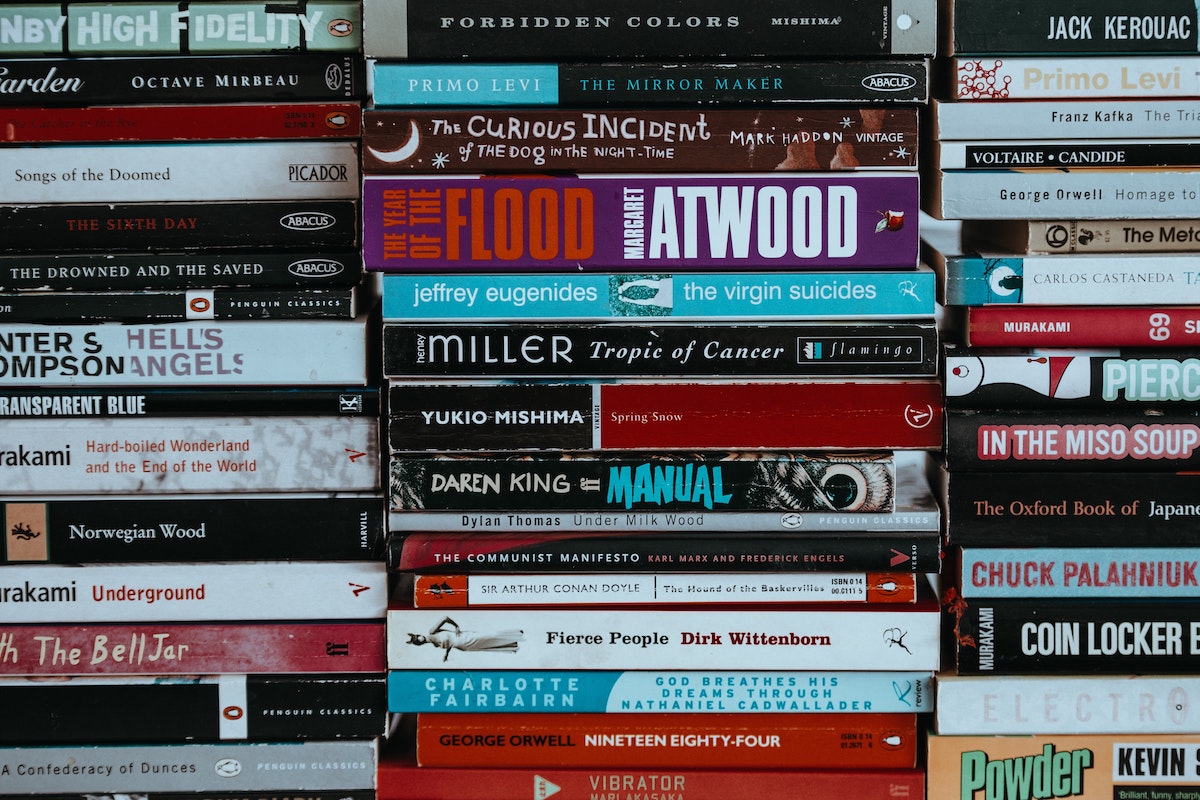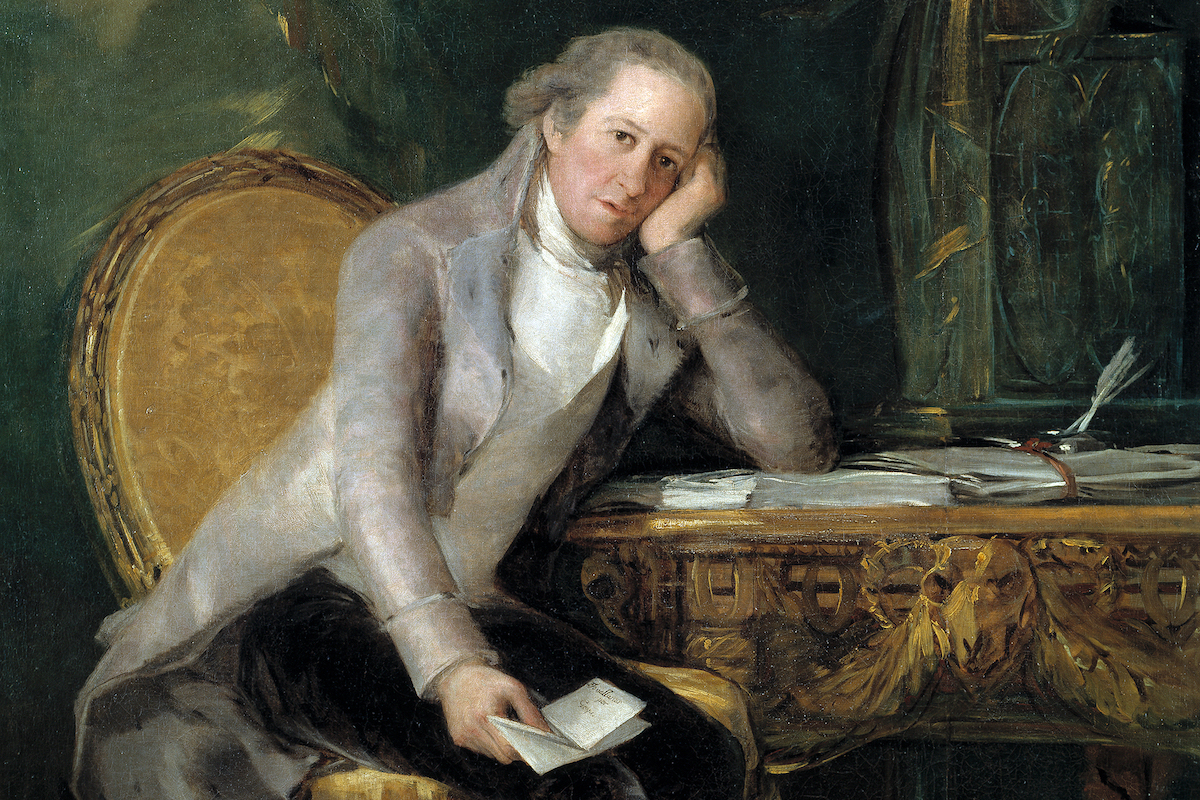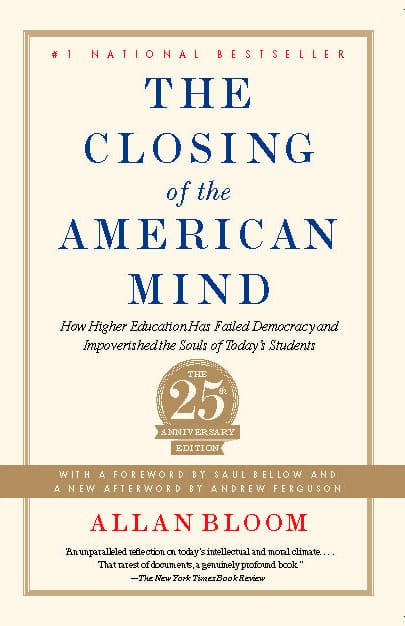Education
Culture, the Humanities, and the Collapse of the Grand Narratives
The socio-economic arguments are based on data indicating that the number of humanities graduates has declined rapidly since the financial crisis in 2008.

Since the late 1950s, scholars and critics have proclaimed the decline and fall of the liberal arts. The crisis in the humanities is, as Geoffrey Galt Harpham argued in the Humanities and the Dream of America, no longer an affliction but a way of life. It is simply hard to imagine the humanities not being in a crisis. Perhaps we cling to this notion because a crisis is, at least, something we can overcome. If we discuss the death of the humanities, all hope is lost.
To really understand what has happened to the humanities we need to analyse the state of Western culture as a whole rather than treating this crisis as an isolated phenomenon in academia. A quick look at the current debate indicates that there are two types of argument in circulation regarding this matter. The first deals with external factors, and focuses primarily on socio-economic changes, while the second deals with changes from within the humanities and the transformation of the academic landscape in the past 50 years.
The socio-economic arguments are based on data indicating that the number of humanities graduates has declined rapidly since the financial crisis in 2008. Naturally, many people seek to give an economic explanation, arguing that weak job prospects are the cause of this decline. In an article for the Atlantic, history professor Benjamin Schmidt develops this argument further. He identifies three eras in the history of the humanities at American universities that can be observed in the wider socio-economic context. From 1955 to the early 1970s, the universities expanded from elite institutions to centres of learning for larger segments of the population, and hordes of students poured into the humanities. In the 1970s, the economy slowed, as did the growth of the universities, and the interest in obtaining college degrees in the humanities declined nationwide.

Around 1985, the situation stabilised, and the number of humanities majors remained about the same until the financial crisis in 2008. Although the economy recovered, the number of humanities majors continued to drop. The plunge affects a wide range of universities, including the elite institutions, and can be seen among both men and women and across racial groups. Schmidt speculates that the financial crisis of 2008 altered students’ perception of what the purpose of a university education is. In response to economic uncertainty, students adopted a mechanical view of higher education, where the process of learning becomes a matter of gathering tools and skills that fit the existing job market.
It is important to note that these data can be interpreted very differently, depending on what is included in “the Humanities.” Jordan Weissmann, a former editor of the Atlantic, argued in a 2013 essay that even if the number of majors in the traditional fields of the humanities (such as history, literature, and philosophy) were as low 30 years previously, the total amount of students holding a college degree in the arts had actually risen. The reason for this is that both the humanities disciplines, and the number of university students, had multiplied. Like Schmidt, Weissmann points out that the aim of a university education has transformed over the past 50 years, but unlike Schmidt, he does not consider whether this is a good or a bad thing.
The purpose of Weissmann’s article is to show that fears of a crisis in the humanities are a result of a misunderstanding of the available evidence. He concludes that the focus of higher education has shifted from the idealistic pursuit of a “life of the mind” towards specialisation and professionalism. Not only do college degrees now cover professions that used to be regarded as skilled labour, such as nurses and police officers, but the theoretical education of doctoral candidates also includes job market skills. According to Weissmann, today’s students are older and more professional than the students of the 1960s, who studied the classics purely out of intellectual curiosity.
Discussion of socio-economic changes in society leads us to the other argument in this debate, which has to do with the evolution of the humanities as an academic field. Both Schmidt and Weissmann observe that, while the traditional fields of the liberal arts are in decline, the younger disciplines are faring quite well. The only branch of the humanities which sees no decline in college degrees is cultural studies, which can be described as a mix of theoretical approaches to the study of human culture, including everything from gender and racial studies to ethnology.
If there is a shift in perception among students (and scholars) that needs to be examined, it is the fall of the traditional disciplines and the triumph of cultural studies. No scholar who participates in the debate about the crisis in the humanities seem to need to explain why cultural studies is important, while they go out of their way trying to make the case for literature, philosophy, and history. Why have the traditional humanistic disciplines lost their ground?
New York Times columnist David Brooks argues that the root cause of the crisis is a lack of purpose—humanist scholars have abandoned their mission to cultivate the human soul. As cultural studies emerged, the humanities turned from an inward to an outward focus and the old notions of truth, beauty, and virtue were exchanged for political categories of race, gender, and other markers of identity.
One might contend that the humanities had an outward focus even before cultural studies entered the scene—not so long ago the cultivation of the soul was regarded as a social mission. The older disciplines, which grew and flourished in the first half of the 20th century, were deeply interlinked with the narratives of the nation and the Enlightenment. From the national point of view, the purpose of the historian was to serve as the memory and the storyteller of the state, while literary scholars were concerned with the preservation and cultivation of the nation’s soul. In this historical setting, the purpose of a liberal arts education was to offer young Americans the broad knowledge-base needed to develop into the morally and intellectually mature citizens that a liberal democracy demands.
Over the past 50 years, these grand narratives were overthrown. New narratives and academic fields, though less unified, have emerged. The traditional disciplines are still adrift, without any solid attachment in time and space. The biggest problem for the traditional humanities disciplines is not cultural studies, but the fact that there is no longer a case to be made for the cultivation of the soul. This problem is not new. It has evolved over centuries and is intimately linked with the battle between the arts and the sciences which dates back to the schism between utilitarians and romantics. The greater historical force behind this development is the secularisation process: the triumph of science as the dominant cultural force in Western society.
The concept of “the humanities” first emerged in the US in the mid-20th century as a response to a radical form of secularism that flourished among scholars and intellectuals of that time: positivism. The positivist philosophy held that the only knowledge worth pursuing—the only truth—was that produced by the natural sciences. Thus, the origin of the term “the humanities,” and of the debate about its crisis, are closely tied to the fear that the cultural memory and activity in society would be obliterated by a one-dimensional focus on science.
Over the past 70 years, however, the positivist narrative itself has disintegrated. After World War II, Western intellectuals became painfully aware that while science could be used for the betterment of human life, it could also be used to inflict great harm. In 1949, Albert Einstein concluded that machinery and technology had made the struggle for life more severe, to the detriment of Western culture, because it greatly restrained the possibility for self-cultivation. But he remained optimistic. In his view, the decline was only a temporary setback caused by the rapid progression of modern civilisation. Once science and technology had been tamed by the ideals of a righteous and humane society, human culture would blossom once more.

An idealist at heart, Einstein hoped that the Western societies would embrace socialism, believing that the just division of labour would leave time for the free development of the individual. That did not happen. Instead, science came to dominate more and more of Western culture, until the pursuit of scientific truth became the sole purpose, not only of scientists, but of literary scholars and historians as well. In the absence of a grand narrative, science became ideological. In 1959, chemist and novelist C.P. Snow published a highly influential essay entitled “The Two Cultures and the Scientific Revolution,” in which he praised the progressive work of scientists while viciously attacking the conservatism of Britain’s literary intellectuals. Snow dismissed literary criticism as a self-indulgent pursuit, and accused literary scholars of clinging to the past, refusing to address real-world problems.
In 1964, British historian J.H. Plumb published the anthology Crisis in the Humanities, in which several of Cambridge’s most prominent humanities professors warned that a world focused on science left no room for human pursuits. In the mid-’70s, the era of radical enlightenment came to an end, as more and more intellectuals questioned the meaning and usefulness of the positivist approach to humanistic scholarship. The rise of Marxist cultural radicalism on the campuses of Western universities in the late 1960s was, at its core, a passionate rejection of the Enlightenment narrative. Students and scholars believed that science and technology had allied with soulless consumerism that drained human life of existential meaning. Many humanists tried to re-introduce Marxism as a grand narrative, hoping that dialectical theory and socialist ethics could bestow upon the modern humanities a strong social mission. Once again, it did not happen, partly because the socialist states, which were supposed to serve as proof of the superiority of the Marxist ideology, rapidly crumbled under the weight of their own corruption, and partly because the moral and cultural relativism inherent in positivism could not be eradicated from the Western mind.

A second phase in the debate about the crisis in the Humanities began in the late-1980s, when American philosopher Allan Bloom published his unexpected 1987 bestseller The Closing of the American Mind. The defenders of the liberal arts tradition now switched political colour—it was primarily conservative critics and commentators who embraced Bloom’s message. The Closing of the American Mind is a defence of the social mission of self-cultivation, an ideal which, in Bloom’s opinion, had nothing to do with political ideologies. According to Bloom, the moral and cultural vacuum left by positivism opened young people up to a decadent and meaningless lifestyle. He also believed that this spiritual void had paved the way for the cultural radicalism of the 1960s, which he regarded as deeply totalitarian and a threat to the very foundation of democracy. To conquer this menace, Bloom suggested that liberal arts education should return to its roots and let students acquaint themselves with the great minds of the Western tradition. Not because the canon is an indisputable entity of greatness, but because it is a map of what has been thought and said and imagined throughout history, which offers the best starting point for young people to embark on their own intellectual journeys.
Then, in 2010, Martha Nussbaum published a book that sparked further debate: Not for Profit: Why Democracy Needs the Humanities. The sweep of the book is similar to Bloom’s as Nussbaum focuses on the role of education in our culture at large: the development of citizenship, the shaping of moral character and the evolution of critical thinking. Today, the idea that science is the sole engine of civilisation, champion of democracy, and saviour of mankind, is as much a narrative of the past as the belief that the liberal arts can foster democratic citizens. Or so it would seem. In recent years, social scientists have taken on the role of moral educators, in much the same way that humanities scholars did 50 years ago. Psychologists like Jonathan Haidt and Jordan Peterson have found a way to deliver their message and their research, not only to their immediate audience within the research community, but to millions of ordinary people within wider society. As trained psychologists, they specialize in matters of the human mind and soul, just like the theologians and philosophers of old. These modern scientists offer solutions to real-life problems and tools for emotional, intellectual, and spiritual growth. In Ancient Greece, medicine inspired the birth of philosophy. Plato modelled his philosophical method after the practice of medicine and integrated the study of the human soul into a holistic education with the goal of creating morally and intellectually “healthy” citizens.
Peterson has emphasized the importance of literature—especially classical myths and the books of the Bible which make up our cultural history—to the development of human character. In this endeavor, he combines the roles of traditional historian and literary scholar, as well as the roles of priest and philosopher. The massive success of Peterson’s books and lectures shows that people still have an enormous interest in, and need for, traditional humanistic culture in their lives. There is a rich flora of contemporary humanistic thought about the role of literature in contemporary life and society. Literary scholars such as Northrop Frye and Joseph Campbell have also reached a big audience outside their academic institutions. Their works nourish human creativity and inspire many other artists and writers. It is time for humanities scholars to rise to the occasion and use their knowledge in the most powerful way it can be used—to keep our culture alive.






